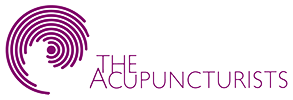
Acupuncture for better blood pressure
High blood pressure, or hypertension, is the scourge of vascular and cardiac medicine – a silent and often undiagnosed condition that is thought to be responsible for around 75 percent of all recorded strokes in the UK.
Although preventative care within clinical medicine has improved significantly in the last two decades with growing investment in regular well-man and well-woman clinics, along with scheduled GP check-ups for patients with potentially problematic health issues, it’s estimated that as many as 4 million of us live with untreated hypertension.
That means nearly a third of the population who are likely to experience high blood pressure are not taking any preventative steps to mitigate its impact.
And as devastating as a stoke can be, it isn’t the only risk that untreated hypertension presents. Other cardiac issues, including heart attacks, are also more likely to be caused by a failure to control blood pressure.
It’s fair to say, then, that the impact of a stroke can’t be overstated – at worst, death; at best, partial – and hopefully temporary – paralysis requiring long and arduous recovery and rehabilitation.
Hypertension often manifests with age-related weight gain, but congenital cardiac defects or genetic causes can also cause it to manifest in younger people.
And since many hypertensive patients have poorly managed blood pressure, the medical field continues to face challenges in educating and treating those more at risk.
What is hypertension, and how is it measured?
A reading of blood pressure is expressed as two digits.
The force your blood needs to pump blood throughout your body is represented by the greater figure, which is known as systolic pressure.
The blood vessel’s resistance to blood flow is represented by the lower value, or diastolic pressure. Each person has a somewhat different blood pressure.
Blood pressure is generally defined as optimal when it is between 90/60 mmHg and 120/80 mmHg, and as excessive when it is 140/90 mmHg or higher. Any readings falling between 120/80 mmHg and 140/90 mmHg may suggest that you are at danger of developing hypertension.
So, what can you do to stay on top of your cardiovascular health?
The first thing, of course, is to see your GP for a check-up in the first instance, especially if you’re over 40 and struggle with your weight, or if you have a family history of heart-related health problems.
Having a clinical baseline to start from is obviously a good first step, because it allows you to get the right treatment if you’re already living with the condition. And if you’re not, it gives you the opportunity to make changes to your lifestyle and mitigate future risk.
Many people with high blood pressure need to take medication for the rest of their lives to reduce blood pressure and maintain a more optimal reading.
But it is possible in many cases to reverse hypertension through a healthy lifestyle that includes good nutrition and exercise, which not only helps to keep your heart and vascular system healthy, but also ensures your immune system is working at its optimal capacity (assuming there are no other underlying health issues).
Giving up smoking and alcohol will also have a positive impact on your vascular health.
Acupuncture for better blood pressure
But introducing acupuncture into your lifestyle routines can also have an exponentially positive impact.
Acupuncture is one of the oldest and most well-respected types of complementary medicine known to man. It has been practiced, first in Ancient China and subsequently around the world, for nearly 2,500 years and has gained great popularity in the West in the last 50 years.
Acupuncture is one of the nonpharmacological therapies that can effectively manage hypertension and can form part of an integrated health approach to complement and enhance clinical treatment.
Research suggests that people with hypertension who undergo acupuncture can often see a natural reduction in blood pressure through the delivery of impulses to the brain regions that help to regulate blood pressure regulation.
According to random research trials assessing acupuncture treatment for high blood pressure in America and published in Pubmed (February, 2021, US National Library of Medicine), positive, short-term, and long-term benefits on lowering systolic (the higher number) blood pressure were observed in one group, following acupuncture treatment.
Results for the second group, who received a mixture of both genuine and false acupuncture treatments, showed a considerable reduction in diastolic blood pressure (DBP) alone, but this reduction was not maintained.
It is reasonable, therefore, to conclude that regular acupuncture therapy, either as part of an integrated approach to care or not, is more likely than not to have a beneficial impact on the successful management of hypertension.
If you’d like to know more about how acupuncture can help to mitigate high blood pressure and its risks – either as a standalone treatment, or as part of an integrated approach to clinical care – please get in touch for an informal and totally confidential chat.
